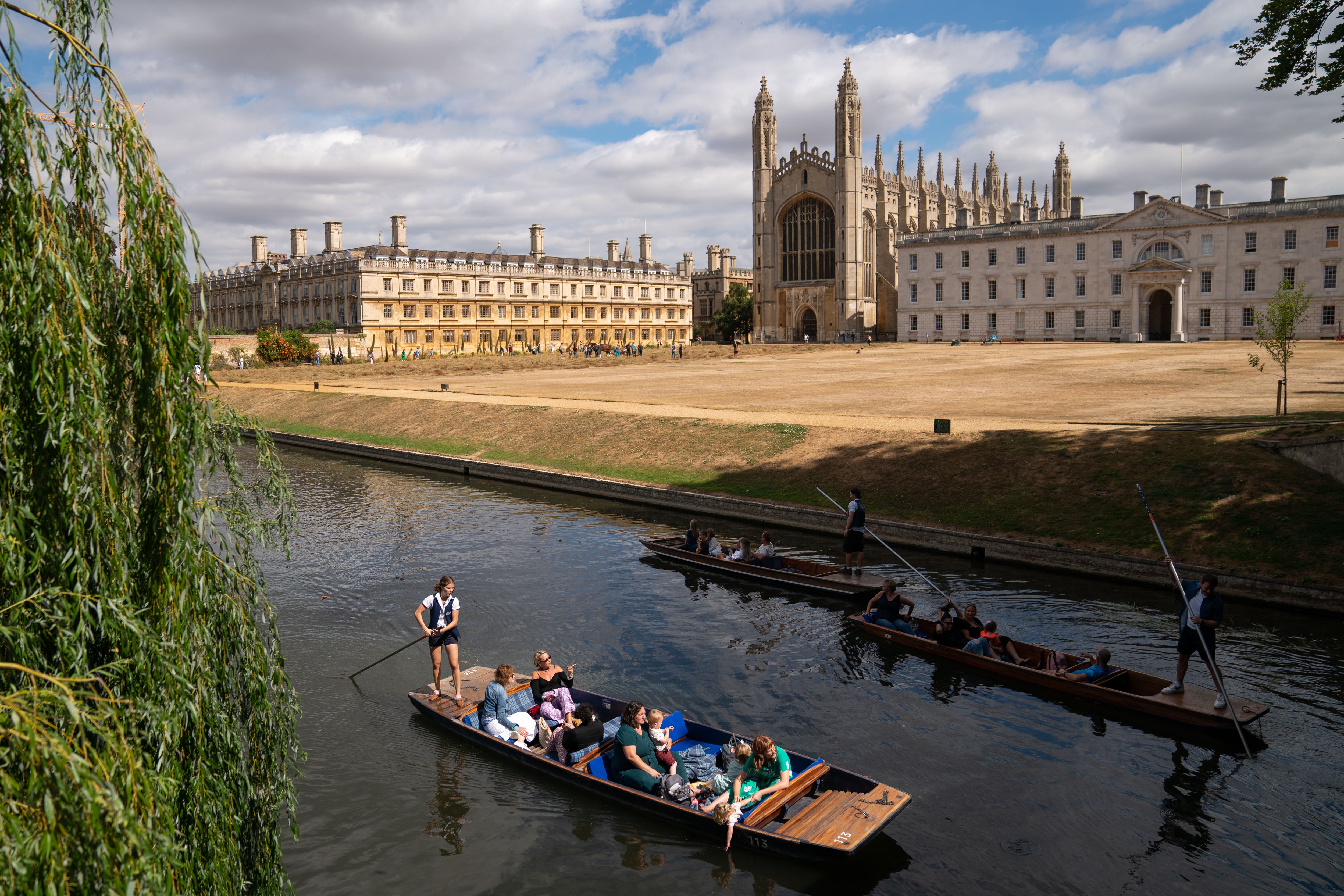Researchers study skeletons for stories of ‘ordinary folk’ in medieval Cambridge
The series of bone biographies indicate that the prestigious university city was a sea of need, with poverty and disease taking their toll.

Your support helps us to tell the story
From reproductive rights to climate change to Big Tech, The Independent is on the ground when the story is developing. Whether it's investigating the financials of Elon Musk's pro-Trump PAC or producing our latest documentary, 'The A Word', which shines a light on the American women fighting for reproductive rights, we know how important it is to parse out the facts from the messaging.
At such a critical moment in US history, we need reporters on the ground. Your donation allows us to keep sending journalists to speak to both sides of the story.
The Independent is trusted by Americans across the entire political spectrum. And unlike many other quality news outlets, we choose not to lock Americans out of our reporting and analysis with paywalls. We believe quality journalism should be available to everyone, paid for by those who can afford it.
Your support makes all the difference.Researchers have studied skeletons of people who lived in medieval Cambridge to learn more about “ordinary folk rather than elites, who are documented in historical sources”.
The series of bone biographies indicate that the prestigious university city was a sea of need, with poverty and disease taking their toll.
Archaeologists from Cambridge University analysed close to 500 skeletal remains excavated from burial grounds across the city, dating between the 11th and 15th centuries.
Samples came from a range of digs dating back to the 1970s.
The latest techniques were used to investigate diets, DNA, activities, and bodily traumas of townsfolk, scholars, friars and merchants.
The arm bones suggested which skeletons may have been early university scholars.
Almost all townsmen had asymmetric arm bones, with their right upper arm bone built more strongly than their left one, reflecting tough working regimes, particularly in early adulthood.
However, about 10 men from a hospital burial ground had symmetrical upper arm bones, yet they had no signs of a poor upbringing, limited growth, or chronic illness.
Most dated from the later 14th and 15th centuries.
The importance of using osteobiography on ordinary folk rather than elites, who are documented in historical sources, is that they represent the majority of the population but are those that we know least about
Lead researcher Professor John Robb said: “These men did not habitually do manual labour or craft, and they lived in good health with decent nutrition, normally to an older age.
“It seems likely they were early scholars of the University of Cambridge.
“University clerics did not have the novice-to-grave support of clergy in religious orders.
“Most scholars were supported by family money, earnings from teaching, or charitable patronage.
“Less well-off scholars risked poverty once illness or infirmity took hold.
“As the university grew, more scholars would have ended up in hospital cemeteries.”
The “osteobiographies” use all available evidence to reconstruct a person’s life, Prof Robb said.
“Our team used techniques familiar from studies such as Richard III’s skeleton, but this time to reveal details of unknown lives – people we would never learn about in any other way,” he said.
Researcher Dr Sarah Inskip, now at the University of Leicester, said: “The importance of using osteobiography on ordinary folk rather than elites, who are documented in historical sources, is that they represent the majority of the population but are those that we know least about.”
The full osteobiographies are available on a new website launched by the After The Plague project at Cambridge University’s Department of Archaeology – www.aftertheplague.com